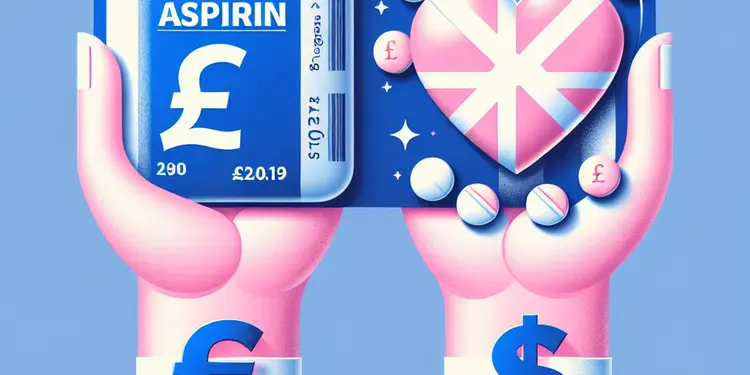
Find Help
More Items From Ergsy search
-

What dosage of aspirin is considered effective for cancer prevention?
Relevance: 100%
-

What should I do if I'm considering aspirin for cancer prevention?
Relevance: 81%
-
Has the FDA approved aspirin for cancer prevention?
Relevance: 77%
-
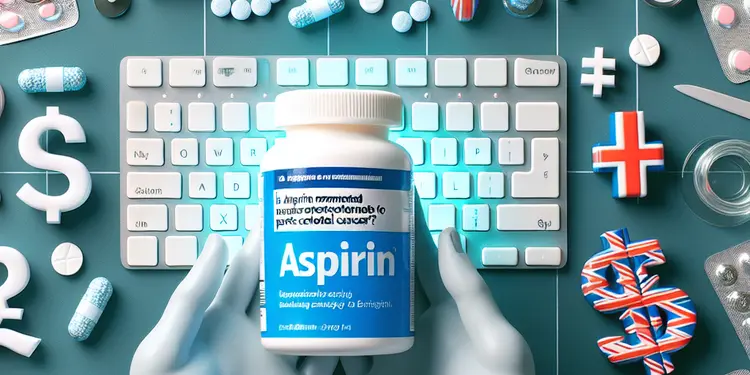
Is aspirin recommended for everyone to prevent colorectal cancer?
Relevance: 76%
-
Is aspirin effective in preventing other types of cancer?
Relevance: 76%
-

What do health organizations say about aspirin and cancer prevention?
Relevance: 70%
-
How long do studies suggest taking aspirin for cancer prevention?
Relevance: 67%
-

Can aspirin stop colorectal cancer?
Relevance: 67%
-
Is aspirin more effective for certain age groups in preventing colorectal cancer?
Relevance: 65%
-

Has aspirin been proven to cure colorectal cancer?
Relevance: 64%
-
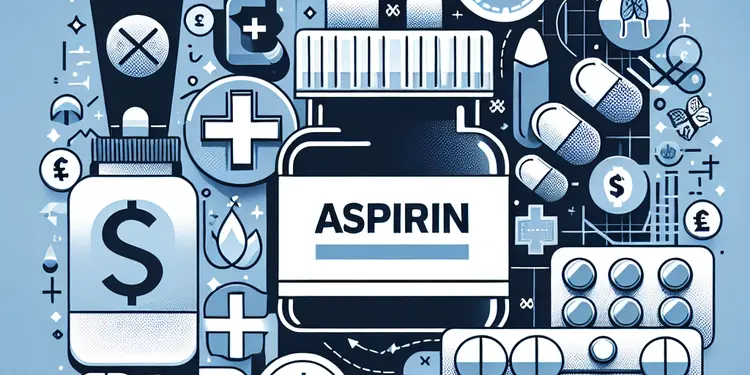
How does aspirin work to reduce cancer risk?
Relevance: 59%
-

Should people with a family history of colorectal cancer take aspirin?
Relevance: 57%
-

Can aspirin prevent colorectal cancer?
Relevance: 56%
-
Can aspirin interact with other medications?
Relevance: 47%
-
Are there ongoing studies about aspirin and colorectal cancer?
Relevance: 46%
-
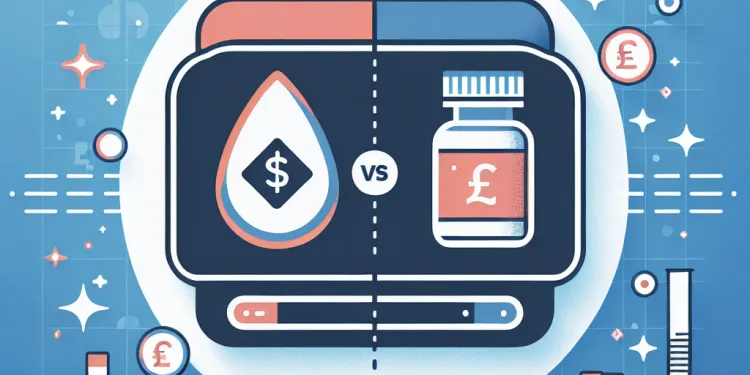
Are Aspirin and Ibuprofen the same?
Relevance: 46%
-

Is Paracetamol the same as Aspirin?
Relevance: 46%
-
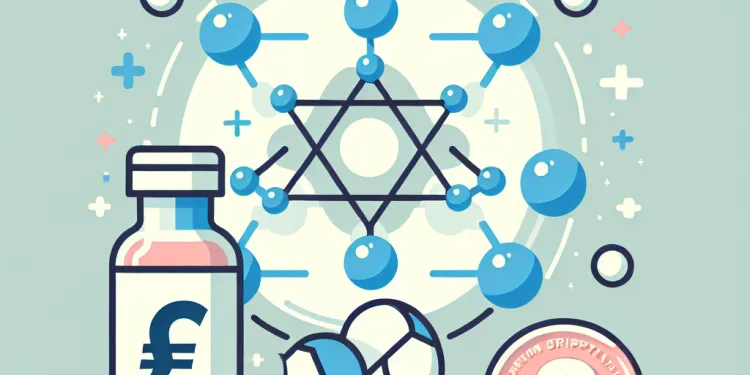
What is Aspirin?
Relevance: 45%
-

What is the difference between aspirin, paracetamol, and ibuprofen?
Relevance: 45%
-

Can aspirin help in reducing the risk of strokes?
Relevance: 44%
-

Which one is better for headaches: Aspirin or Paracetamol?
Relevance: 42%
-
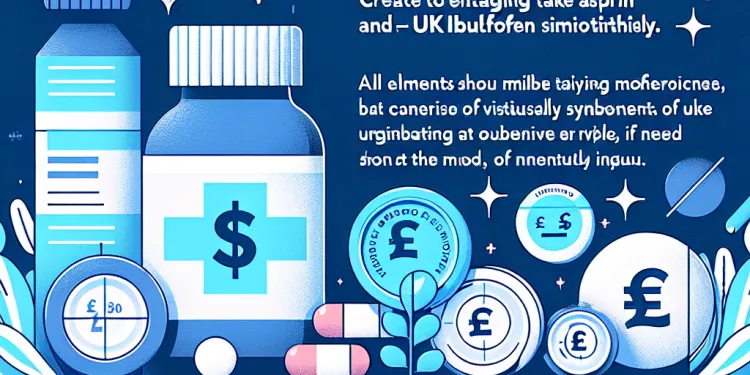
Can I take Aspirin and Ibuprofen together?
Relevance: 42%
-

Can bowel cancer be prevented?
Relevance: 41%
-

What is the difference between Aspirin, Paracetamol, and Ibuprofen?
Relevance: 40%
-
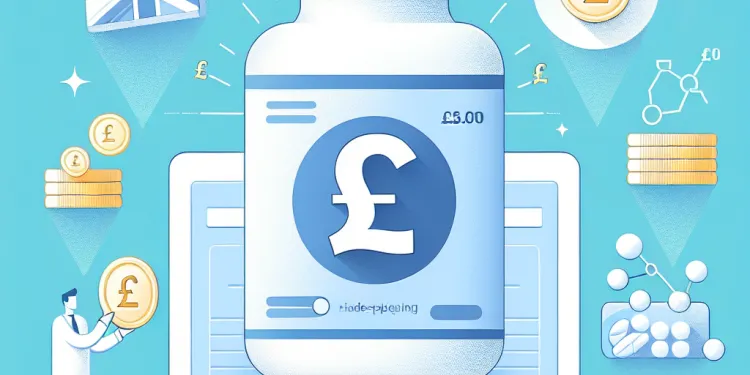
What are the side effects of Aspirin?
Relevance: 39%
-
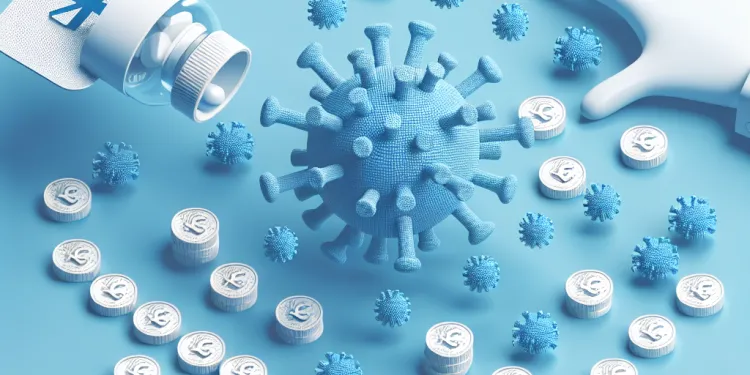
Is it safe to use aspirin to treat chickenpox symptoms?
Relevance: 37%
-
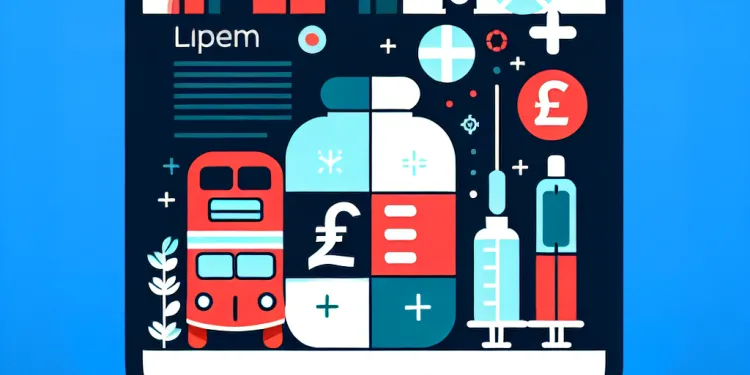
What is the typical dosage of Ozempic for weight loss?
Relevance: 37%
-
Should individuals with certain medical conditions avoid aspirin?
Relevance: 36%
-

Can lifestyle changes help prevent testicular cancer?
Relevance: 35%
-
Can lifestyle changes also help prevent colorectal cancer?
Relevance: 34%
-

What is Aspirin?
Relevance: 33%
-

Do over-the-counter medications help in preventing heart attacks and strokes?
Relevance: 33%
-
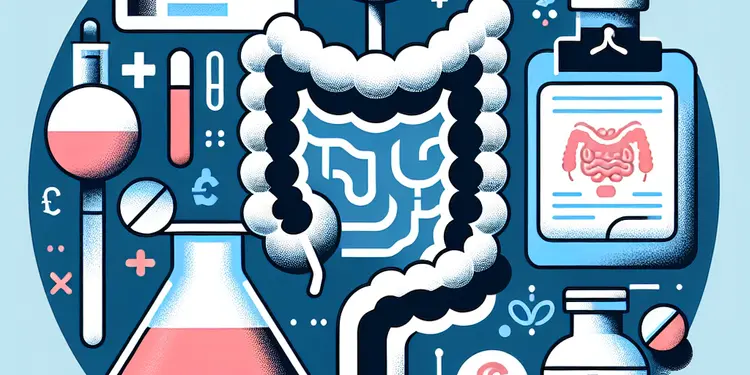
Do all studies agree on aspirin's effectiveness in preventing colorectal cancer?
Relevance: 31%
-

Endometrial Cancer
Relevance: 28%
-
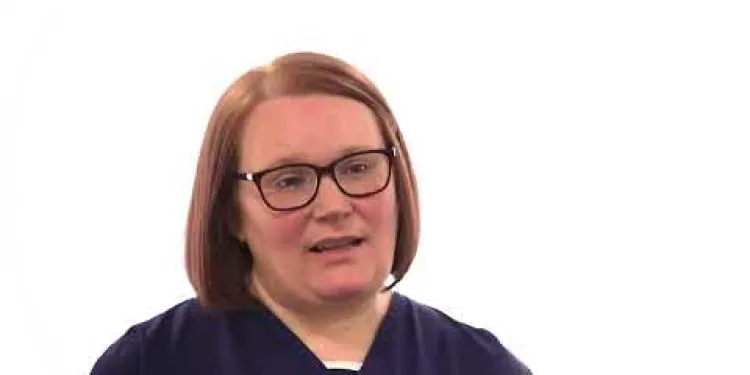
Vaginal Cancer
Relevance: 28%
-
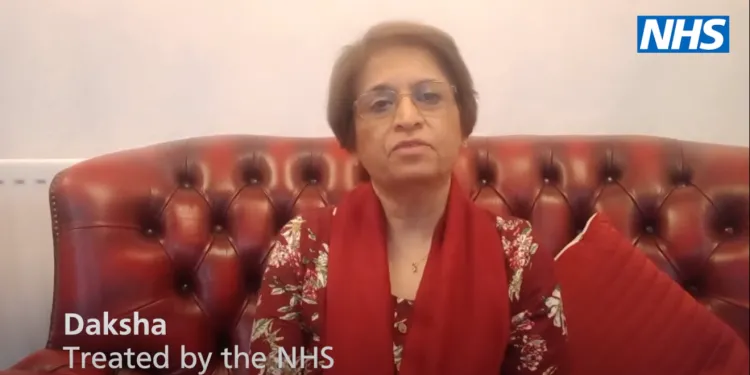
What is Cancer?
Relevance: 28%
-

Endometrial Cancer
Relevance: 27%
-

Are there risks associated with taking aspirin regularly?
Relevance: 27%
-

What is testicular cancer?
Relevance: 27%
-

Endometrial Cancer
Relevance: 27%
Understanding Aspirin for Cancer Prevention
Aspirin, a common non-steroidal anti-inflammatory drug (NSAID), has been used for decades to relieve pain and reduce inflammation. Recently, research has suggested that low-dose aspirin could play a role in cancer prevention. In the UK, this notion is attracting considerable attention due to its potential benefits. This article explores the effective dosage of aspirin for cancer prevention, focusing on evidence from scientific studies.
Scientific Evidence on Aspirin and Cancer Prevention
A number of studies have indicated that regular use of low-dose aspirin may reduce the risk of certain cancers, particularly colorectal cancer. For instance, a study conducted by the University of Oxford found that daily intake of low-dose aspirin reduced colorectal cancer risks by about 20%. Furthermore, the research suggested that consistent use over several years was associated with the most significant reduction in cancer incidence and mortality.
Effective Dosage for Cancer Prevention
In the UK, low-dose aspirin typically comes in 75 mg tablets, which is commonly referred to as "baby aspirin" in other regions. This dosage is widely used for cardiovascular disease prevention as well. The evidence suggests that a daily dose of 75 mg may be effective for cancer prevention. However, there are studies that have also looked at slightly higher doses, such as 100 mg or 300 mg. Despite this, the consensus tends to support the lower 75 mg dose for long-term use due to its balance of benefits and reduced risk of side effects.
Considerations and Recommendations
It is essential to consult with a healthcare professional before beginning a regimen of low-dose aspirin for cancer prevention. While aspirin is generally safe, it can cause side effects such as gastrointestinal bleeding and ulcers, particularly at higher doses or with prolonged usage. Individuals with a history of stomach issues, bleeding disorders, or those taking other medications should be particularly cautious.
Furthermore, while the evidence supporting aspirin's role in cancer prevention is compelling, it should not replace regular cancer screening methods, such as colonoscopies or mammograms. Instead, aspirin might be considered a supplementary approach for those at high risk or with a family history of cancer.
Conclusion
In summary, a daily low-dose aspirin regimen, typically 75 mg, is considered potentially effective for reducing the risk of certain types of cancer, particularly colorectal cancer. However, this is not a one-size-fits-all recommendation, and individual risks and benefits must be evaluated. Professional medical advice is crucial to ensure that this preventative measure is appropriate for each individual's health circumstances.
Learning About Aspirin for Stopping Cancer
Aspirin is a medicine that helps with pain and swelling. People have used it for a long time. Now, some scientists think taking a small amount of aspirin might help stop cancer. In the UK, many people are interested in this idea because it might help their health. This article will talk about how much aspirin might help stop cancer, using information from science studies.
What Science Says About Aspirin and Cancer
Some studies say taking small amounts of aspirin often might help lower the chance of getting some cancers, like bowel cancer. One study from the University of Oxford found that taking a small bit of aspirin every day can lower the chance of bowel cancer by about 20%. Also, the study says taking it for many years helps the most in lessening cancer and helping people live longer.
How Much Aspirin to Take to Help Stop Cancer
In the UK, aspirin usually comes in little 75 mg pills. People sometimes call this "baby aspirin". People often take this amount to help their heart too. Studies say taking 75 mg each day might help stop cancer. Some other studies looked at taking more, like 100 mg or 300 mg. But most experts think 75 mg is good for long use because it helps and has less chance of causing problems.
Things to Think About and Advice
You should talk to a doctor before starting to take aspirin to stop cancer. While aspirin is mostly safe, it can still cause problems like bleeding in the stomach or ulcers, especially if you take a lot or use it for a long time. If you have had stomach problems before, bleed easily, or take other medicines, be extra careful.
Also, even though aspirin might help stop cancer, it should not replace regular checks for cancer, like colonoscopies or mammograms. Instead, aspirin can be another thing to try if you are at high risk of cancer or if your family has had cancer.
Ending Thoughts
To sum up, taking a small aspirin pill, usually 75 mg each day, might help lower the chance of getting some cancers, like bowel cancer. But this advice might work better for some people than others. It is important to talk to a doctor to make sure it's the right choice for you and your health.
Frequently Asked Questions
What is the recommended dosage of aspirin for cancer prevention?
The recommended dosage varies, but low-dose aspirin (75-100 mg) is often suggested. Always consult with a healthcare professional before starting any regimen.
Can taking aspirin daily reduce the risk of cancer?
Some studies suggest that daily low-dose aspirin may reduce the risk of certain cancers, but it's important to discuss with your doctor.
Is there a specific age when aspirin is more effective for cancer prevention?
The benefits and risks of aspirin for cancer prevention can vary based on age and individual health, so consult with a healthcare provider for personalized advice.
How long should I take aspirin to see cancer prevention benefits?
Regular use over several years may be needed to see potential benefits, but it's essential to balance with the risks of long-term aspirin use.
Is aspirin equally effective in preventing all types of cancer?
Aspirin may be more effective against certain types like colorectal cancer, but less evidence exists for other types. Discuss specific risks with a doctor.
What are the risks associated with taking aspirin daily for cancer prevention?
Risks include gastrointestinal bleeding and hemorrhagic stroke. A healthcare provider can help weigh these against potential benefits.
Can aspirin replace regular cancer screening tests?
No, aspirin should not replace regular screening tests; it may be used as part of a preventative strategy alongside screening.
How does aspirin work in cancer prevention?
Aspirin has anti-inflammatory properties that may help prevent cancer cell growth and inhibit platelet aggregation.
Should everyone take aspirin for cancer prevention?
Not everyone should take aspirin for cancer prevention. It's crucial to assess individual risk factors and consult with a healthcare provider.
Can I stop taking aspirin if I experience side effects?
If you experience side effects, consult your doctor immediately to discuss whether you should stop taking aspirin.
Are there any specific guidelines for aspirin use in cancer prevention?
Guidelines may vary, but it's generally advised to consult a healthcare professional for recommendations tailored to your health profile.
How soon can I expect to see benefits from taking aspirin for cancer prevention?
It may take several years to see potential benefits, and ongoing research is necessary to fully understand the timeline.
Is low-dose aspirin safe for everyone to use long-term?
Long-term use of low-dose aspirin should be assessed by a healthcare provider due to risks like bleeding.
What factors increase the risk of bleeding with aspirin use?
Factors include older age, concurrent use of other NSAIDs, and a history of gastrointestinal ulcers or bleeding.
Are there populations who should avoid aspirin for cancer prevention?
Those with bleeding disorders, allergies to NSAIDs, or high risk of bleeding generally should avoid aspirin.
Does aspirin interact with other medications?
Yes, aspirin can interact with various medications, such as anticoagulants and other NSAIDs. Consult a healthcare provider to evaluate risks.
Is there a difference between enteric-coated aspirin and regular aspirin for cancer prevention?
Enteric-coated aspirin may lessen stomach irritation, but effectiveness for cancer prevention remains similar to regular aspirin.
Can lifestyle factors influence the effectiveness of aspirin in cancer prevention?
Yes, combining aspirin with a healthy lifestyle, such as a balanced diet and regular exercise, may enhance prevention efforts.
Are there alternatives to aspirin for cancer prevention?
Other preventive measures include lifestyle changes, regular screenings, and, in some cases, medications; discuss options with a healthcare provider.
What should I do if I miss a dose of aspirin?
If you miss a dose, take it as soon as you remember unless it's almost time for the next dose. Never double up doses. Consult your doctor for guidance.
How much aspirin should you take to help stop cancer?
The amount of aspirin you should take can be different for everyone. Usually, a small dose like 75-100 mg is suggested. It's important to talk to a doctor before you start taking aspirin.
Can taking aspirin every day help stop cancer?
Some studies show that taking a small aspirin every day might help prevent some kinds of cancer. But, it's very important to talk to your doctor first.
What age does aspirin work best to stop cancer?
Aspirin might help stop cancer, but it can also have risks. The good and bad parts can change if you are older. Talk to your doctor to find out what is best for you.
How long should I take aspirin to help stop cancer?
Aspirin can help stop some types of cancer. But, you need to take it for a long time. Talk to your doctor about how long is safe for you.
Here are some tools to help:
- Ask someone you trust to help you understand.
- Use pictures or drawings to help explain.
Using it for many years might help, but it is important to think about the risks of taking aspirin for a long time.
Does aspirin stop all kinds of cancer the same way?
Aspirin can help more with some cancers like colorectal cancer. But we don't know as much about how it helps with other types of cancer. Talk to your doctor about the risks.
What are the dangers if you take aspirin every day to stop cancer?
Aspirin is a medicine.
Some people take it every day to try to stop cancer.
But taking aspirin can sometimes be bad for you.
Here are some things to think about:
- Your tummy might hurt.
- You could get a headache.
- You might feel dizzy.
- Your skin could get itchy.
- You might have to go to the bathroom more often.
Always talk to a doctor before taking aspirin every day.
Tell the doctor if you feel any problems.
A tool to help could be a diary. Write down how you feel each day. Show it to the doctor.
Taking some medicines can hurt your tummy and make you bleed inside. Sometimes, it can also cause trouble with your brain that makes it bleed. A doctor or nurse can help you decide if taking the medicine is good for you. They look at the good things and bad things about it.
Can aspirin be used instead of regular cancer check-ups?
No, you should not stop having regular health check-ups and tests. Aspirin can help keep you healthy, but you still need your tests.
How does aspirin help stop cancer?
Aspirin is a medicine. People take it to help stop pain.
Doctors think aspirin might also help stop some kinds of cancer. It can slow down how fast cancer grows.
Aspirin might change how cells in the body work so they don't turn into cancer cells.
If you want to know more about using aspirin, you can talk to a doctor.
Reading tools can help you understand. Ask someone to read with you or use a voice reading app.
Aspirin can help stop swelling and might slow down cancer from growing. It can also stop blood cells from sticking together.
Is it good for everyone to take aspirin to stop cancer?
Aspirin is a medicine. Some people think it might help stop cancer. But should everyone take it?
It is important to talk to a doctor first. A doctor can tell you if aspirin is right for you.
Remember, everyone's body is different. What works for one person might not work for another.
You can use big letters or pictures to help understand. Audiobooks can also help if reading is hard.
Not everyone should take aspirin to stop cancer. It is important to think about your own health and talk to a doctor.
What should I do if aspirin makes me feel sick?
If taking aspirin makes you feel unwell, talk to your doctor. They will help you decide what to do.
Do not stop taking aspirin without asking your doctor first. They know how to help you best.
Reading tools like text-to-speech can help you if you find reading hard.
If you feel unwell after taking aspirin, talk to your doctor right away. They will help you decide if you should stop taking the medicine.
Can aspirin help stop cancer?
Aspirin might help prevent some types of cancer, but you should talk to your doctor first. They can tell you if aspirin is safe for you. Always check before starting any new medicine.
Here are some tips to make reading easier:
- Use pictures to help understand the words.
- Ask someone you trust to read with you.
- Take breaks so you don't feel too tired.
It's important to talk to a doctor about what's best for your health. They can give you advice that fits your needs.
When will aspirin help prevent cancer?
Aspirin might help stop some cancers. But it takes time. Ask a doctor or nurse for advice. Using a pill box or calendar can help you remember. Always check with a grown-up or health worker before starting any medicine.
It can take a long time before we see any good changes. We need to keep learning and studying to know how long it will take.
Is taking a little aspirin safe for everyone for a long time?
If you take aspirin for a long time, even in small amounts, you should talk to a doctor. Aspirin can cause problems like bleeding. A doctor can help you understand the risks.
What makes bleeding more likely when taking aspirin?
Things that can cause problems include being older, taking other pain medicines at the same time, and having had stomach ulcers or bleeding before.
Who should not take aspirin to stop cancer?
If you're thinking of taking aspirin, talk to your doctor first. Some people should avoid it because it might not be safe for them. Always ask a doctor or nurse before starting new medicine. Here are some tips to help understand more: - Use pictures or videos about aspirin and cancer. - Ask questions if you don't understand something. Let someone help you read if it gets tricky.People who have problems with bleeding, are allergic to certain pain relievers, or who might bleed easily should not take aspirin.
Can aspirin mix with other medicines?
Aspirin might change how other medicines work. Always talk to a doctor or nurse before taking aspirin with other pills. They can help you stay safe.
Yes, aspirin can mix with other medicines, like blood thinners and pain relievers. Talk to a doctor to learn about any dangers.
How is enteric-coated aspirin different from regular aspirin for stopping cancer?
Aspirin with a special coating might help protect your stomach. It works just as well as normal aspirin for helping to stop cancer.
Can the way we live change how well aspirin stops cancer?
Yes, taking aspirin and living a healthy life can help prevent health problems. You can eat healthy food and exercise regularly.
Other Ways to Help Stop Cancer Without Aspirin
To stay healthy, you can do some things to prevent problems. You can:
- Change some habits like eating healthy food and exercising.
- Go to the doctor for regular check-ups.
- Sometimes, take medicine if the doctor says it will help.
Talk to your doctor about what is best for you. They can help you make a plan.
What to Do If You Forget to Take Your Aspirin
If you forget to take your medicine, take it when you remember. But if it is almost time to take your next medicine, just wait. Do not take two doses. Ask your doctor if you are unsure.
Useful Links
This website offers general information and is not a substitute for professional advice.
Always seek guidance from qualified professionals.
If you have any medical concerns or need urgent help, contact a healthcare professional or emergency services immediately.
- Ergsy carfully checks the information in the videos we provide here.
- Videos shown by Youtube after a video has completed, have NOT been reviewed by ERGSY.
- To view, click the arrow in centre of video.
- Most of the videos you find here will have subtitles and/or closed captions available.
- You may need to turn these on, and choose your preferred language.
- Go to the video you'd like to watch.
- If closed captions (CC) are available, settings will be visible on the bottom right of the video player.
- To turn on Captions, click settings .
- To turn off Captions, click settings again.
More Items From Ergsy search
-

What dosage of aspirin is considered effective for cancer prevention?
Relevance: 100%
-

What should I do if I'm considering aspirin for cancer prevention?
Relevance: 81%
-
Has the FDA approved aspirin for cancer prevention?
Relevance: 77%
-

Is aspirin recommended for everyone to prevent colorectal cancer?
Relevance: 76%
-
Is aspirin effective in preventing other types of cancer?
Relevance: 76%
-

What do health organizations say about aspirin and cancer prevention?
Relevance: 70%
-
How long do studies suggest taking aspirin for cancer prevention?
Relevance: 67%
-

Can aspirin stop colorectal cancer?
Relevance: 67%
-
Is aspirin more effective for certain age groups in preventing colorectal cancer?
Relevance: 65%
-

Has aspirin been proven to cure colorectal cancer?
Relevance: 64%
-

How does aspirin work to reduce cancer risk?
Relevance: 59%
-

Should people with a family history of colorectal cancer take aspirin?
Relevance: 57%
-

Can aspirin prevent colorectal cancer?
Relevance: 56%
-
Can aspirin interact with other medications?
Relevance: 47%
-
Are there ongoing studies about aspirin and colorectal cancer?
Relevance: 46%
-

Are Aspirin and Ibuprofen the same?
Relevance: 46%
-

Is Paracetamol the same as Aspirin?
Relevance: 46%
-

What is Aspirin?
Relevance: 45%
-

What is the difference between aspirin, paracetamol, and ibuprofen?
Relevance: 45%
-

Can aspirin help in reducing the risk of strokes?
Relevance: 44%
-

Which one is better for headaches: Aspirin or Paracetamol?
Relevance: 42%
-

Can I take Aspirin and Ibuprofen together?
Relevance: 42%
-

Can bowel cancer be prevented?
Relevance: 41%
-

What is the difference between Aspirin, Paracetamol, and Ibuprofen?
Relevance: 40%
-

What are the side effects of Aspirin?
Relevance: 39%
-

Is it safe to use aspirin to treat chickenpox symptoms?
Relevance: 37%
-

What is the typical dosage of Ozempic for weight loss?
Relevance: 37%
-
Should individuals with certain medical conditions avoid aspirin?
Relevance: 36%
-

Can lifestyle changes help prevent testicular cancer?
Relevance: 35%
-
Can lifestyle changes also help prevent colorectal cancer?
Relevance: 34%
-

What is Aspirin?
Relevance: 33%
-

Do over-the-counter medications help in preventing heart attacks and strokes?
Relevance: 33%
-

Do all studies agree on aspirin's effectiveness in preventing colorectal cancer?
Relevance: 31%
-

Endometrial Cancer
Relevance: 28%
-

Vaginal Cancer
Relevance: 28%
-

What is Cancer?
Relevance: 28%
-

Endometrial Cancer
Relevance: 27%
-

Are there risks associated with taking aspirin regularly?
Relevance: 27%
-

What is testicular cancer?
Relevance: 27%
-

Endometrial Cancer
Relevance: 27%


